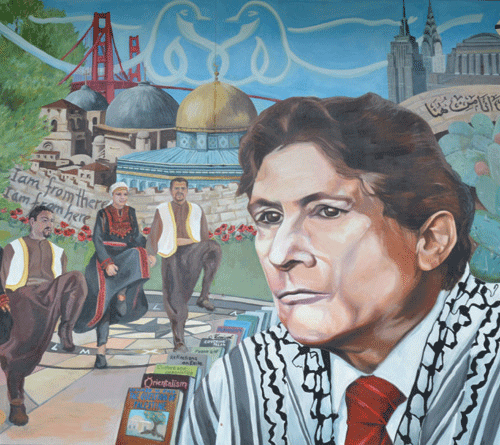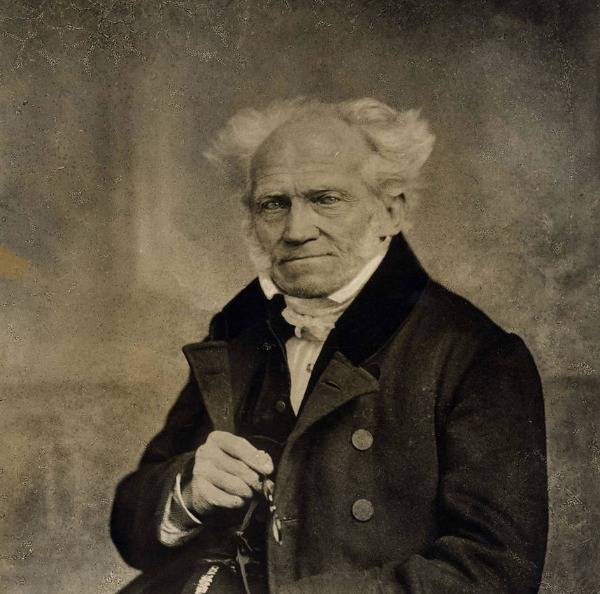
This article is a preview from the Winter 2013 issue of New Humanist magazine. You can subscribe here.
To return somewhere, Edward Said once said, is really to return to history, “so that we understand what exactly happened, why it happened and who we are.” With his Palestinian Christian family unable to return to their confiscated home in Jerusalem after 1948, Said was educated in Egypt and the United States, an experience of exile that would profoundly shape his worldview both as a critic and as a powerful voice for the Palestinian right to a homeland. He is best remembered for Orientalism, the 1979 work which made the controversial claim that there was a relationship between representations of the “Orient” in European culture and the political project of dominating and restructuring the Middle East.
While many of the Columbia University academic’s other works, including Culture and Imperialism and Covering Islam, are also acclaimed, his collection of five linked essays published after his death in 2003, Humanism and Democratic Criticism, has received muted attention. Yet this slim volume of meditations on the relevance of both the humanities and “humanism” in our time has much to offer when it comes to addressing difficult questions about how we interact and co-exist in increasingly diverse societies across the globe.
While he was a fierce critic of empire, Said was profoundly interested in what could be done with a concept like humanism, laden as it is with the baggage of colonial civilisational missions and Eurocentrism, the worldview that assesses the rest of the world through the lens of European and white superiority. Perhaps surprisingly, at least for those who (despite his vocal protestations) read him as the originator of a postmodern and postcolonial approach to culture, Said describes himself as a humanist, insisting that “attacking the abuses of something is not the same thing as dismissing or entirely destroying that thing.” He himself remained unaffected by the antihumanism that characterised academic postmodernism with its “dismissive attitudes” to ideas such as enlightenment and emancipation. What then is the humanism that Said wishes to not have thrown out with the bathwater of discredited colonial or racist projects? For him, “the core of humanism is the secular notion that the historical world is made by men and women, and not by God and that it can be understood rationally ... Or to put it differently, we can really only know what we make.”
Given that terms like “reason” and “secularism” have often been and continue to be used as sticks with which to beat apparently backward cultures and communities, what would prevent this reclaimed project of “critical humanism” from falling prey to precisely the same abuses that bedevilled a more familiar Western “high humanism”? Integral to Said’s advocacy of a critical and democratic humanism is the understanding that the ideas underpinning humanist practice are not, in fact, exclusive to one culture or the other; they are part of a “collective human history”. Engaging carefully with a variety of traditions and contexts across the world will make clear that aspirations to liberty, learning, justice and equality are genuinely universal. All societies are capable of change and change is always enacted by those who resist the depredations of power, whether in the form of despotism and tyranny or unjust war and military occupation.
Humanism has also to be wrenched from its association with and deployment by selective elites, “be they religious, aristocratic, or educational”, and returned to its democratic provenance because it is ultimately about the capacity of the human mind to free itself. The human capacity for discovery, self-criticism and engaging in “a continuous process of self-understanding” means that no one is incapable of humanistic thinking and nothing is exempt from humanism’s critical reach, whether religious fanaticism, atheist dogmatism or “manifestly imperial plans for domination” that might otherwise pass for entirely rational and necessary. Those who use humanism or secularism as weapons for asserting dominance or superiority over other cultures generally miss “what has long been a characteristic of all cultures, namely, that there is a strong streak of radical antiauthoritarian dissent in them.” What makes all cultures and civilisations interesting is actually “their countercurrents, the way that they have had of conducting a compelling dialogue with other civilisations”. Triumphalist encomia to one’s own national tradition or belligerent scapegoating of “outsiders” not only go against humanism’s true spirit of refusing pre-packaged and codified certainties but also violate its nature as a necessarily collective human enterprise.
Said’s sense of the secular – he had long championed a style of thinking and scholarship that he termed “secular criticism” – is much more substantial than an insistence on compulsory atheism or a formal separation of church and state. Secularism for him has much more to do with being able to step outside the paradigms or ideologies to which one is habituated and then challenging not just others but oneself to question received ideas. At the heart of the practice of humanist secularism is a refusal to “denigrate, demonise, and dehumanise” or to “consolidate and affirm one tradition over another.” But Said was emphatically no relativist and had little time even for the more acceptable academic versions of relativism that underlay postmodern shibboleths like “indeterminacy”. The point he is making here is a nuanced one – that cultures and traditions are not, ultimately, neatly sealed off from each other and, just as none has a copyright on humanist values or ideas, none can be regarded as constitutively backward.
There is no injustice or problematic practice that can’t be critically examined and undone. Coming up with models of tolerance and co-existence isn’t to propagate what Said scathingly referred to as a “lazy or laissez-faire multiculturalism”. It involves, rather, taking other traditions seriously enough to come to an understanding of their contributions to your own culture and to humanism more broadly. Said provides here the example of key Islamic contributions to the West and to humanism itself, which have been studied by scholars such as George Makdisi, and the “Afro-Asiatic” roots of ancient Greek civilisation demonstrated so powerfully by the historian Martin Bernal, who died earlier this year. Clearly more work remains to be done on these non-European contributions to intellectual life.
In the end, Humanism and Democratic Criticism is a polemic against different varieties of cultural and intellectual laziness: that underlying received ideas and unexamined language; that which motivates pundits, academic and popular, to condemn the lives and milieus of others without paying critical attention to their own; and that which underlies calls for unquestioning allegiance to this or that nation, religion, community or identity. Humanism, in Said’s elaboration of it is, to put it informally, the art of being alert to bullshit. It also draws on a quality that is often missing in claims made on its behalf – that of humane-ness. This puts an obligation on the humanist to identify silences and find ways for those options, ideas or people who are swept out of the way to be recovered and heard. The humanist has to be adversarial to power rather than bellicose on its behalf. The time has come to “stop allowing ourselves to think of humanism as a form of smugness” in favour of defining it “as an unsettling adventure in difference” and in “alternative traditions”, all of which intersect and transform each other.

